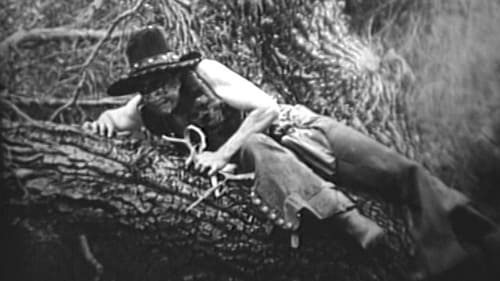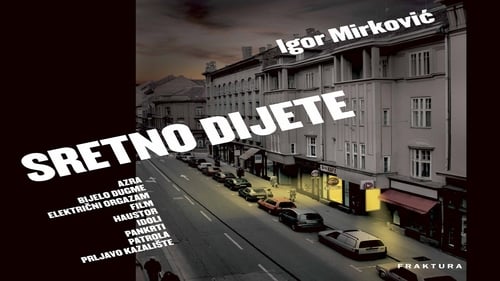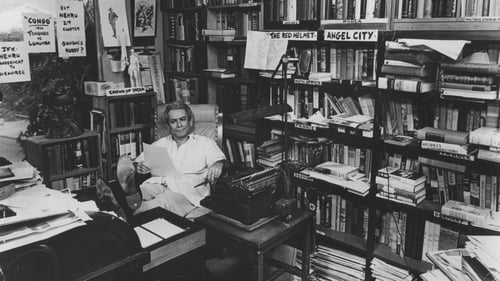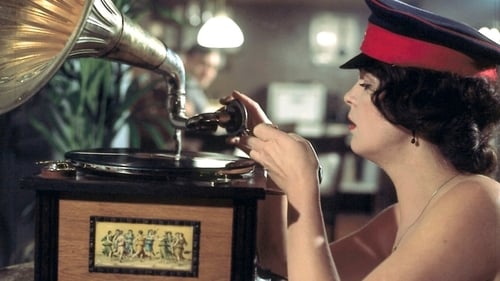Reel Bad Arabs: How Hollywood Vilifies a People (2006)
Gênero : Documentário
Runtime : 50M
Director : Jeremy Earp, Sut Jhally
Sinopse
This documentary dissects a slanderous aspect of cinematic history that has run virtually unchallenged form the earliest days of silent film to today's biggest Hollywood blockbusters. The film explores a long line of degrading images of Arabs--from Bedouin bandits and submissive maidens to sinister sheikhs and gun-wielding "terrorists"--along the way offering devastating insights into the origin of these stereotypic images, their development at key points in US history, and why they matter so much today.

Surrounded by death and the brutal lifestyle that feeds it, a Los Angeles gangbanger explores the history of Southern California street gangs from the 1950s through the 1990s in an attempt to fully understand his existence. Bastards of the Party humanizes the staggering casualties of the LA gang wars.

Twelve renegades dressed as Indians kill the parents of two brothers. The brothers who have similar birth marks then separate. Ten years later a man known as the Rawhide Terror is murdering the renegades who are now town citizens. Everyone is after the Rawhide Terror and the two brothers are destined to meet again.

The Happy Child is a story of "New Wave" rock genre predominant in the ex-Yugoslavia during the socialist 70's and 80's.

Moving between two extremes - the intimate verite drama of the Miss India pageant's rigorous beauty "bootcamp" and the intense regime of a militant Hindu fundamentalist camp for young girls. The World Before Her delivers a provocative portrait of India and its current cultural conflicts during a key transitional era in the country's modern history.

Kent, Lasse, Olle and Sven are in their mid-twenties and have been friends since childhood. At a restaurant they meet two young women and one of them, Lena, becomes pregnant. Now, who is the father? Well, it's definitely not Kent, but the others convince him to accept the fatherhood.

Documentary filmmaker Yoav Shamir's depiction of the checkpoints that the Israel Defense Forces man in the Palestinian Authority.

A collection of interviews and footage of the band detailing how their sound progressed and how their albums were made.

In a documentary about Samuel Fuller, the spectator gets different impressions about the Hollywood director and his films. The film is divided into the three sections: The Typewriter, the Rifle and the Movie Camera. The first segment covers Fuller's past as a newsman where he began as a copy boy and ended as a reporter. Part two describes Fuller's experiences in World War II, in which he participated as a soldier. The last section focuses on Fuller as director. Tim Robbins interviews Samuel Fuller revealing the director's own memories and impressions. Beside the interview, Jim Jarmusch, Martin Scorsese and Quentin Tarantino accompany the documentary with their comments.

Tough Guise systematically examines the relationship between pop-cultural imagery and the social construction of masculine identities in the U.S. at the dawn of the 21st century.

A group of crotchety codgers attempt to revive the punk-rock band they all played in 17 years earlier in "Punk Is Not Dead".

An expedition goes in search of a party lost in the Arctic the year before. The English language version of this German film was made at the same time but with a slightly different cast and released later that year as S.O.S. Iceberg, directed by Tay Garnett.

Journalist Lawrence Wright brings his multilayered one-man play to the screen as he discusses how a reporter remains objective while covering highly charged issues such as 9/11, Al-Qaeda, Osama bin Laden's past and the history of Islam. Wright examines the Muslim religion, Al-Qaeda's rise to power and bin Laden's complicated relationship with the rulers of Saudi Arabia in this riveting documentary from Academy Award-winning director Alex Gibney.

During its 85-minute running time, this jarring experimental film takes a no-holds-barred look at the way women have been treated and depicted in Western art.

A young man has trouble communicating with people and is seeing a shrink. He falls in love at first sight, then meets three friends and joins their small community. The four youngsters naively decide to make some easy money by blackmailing an elderly woman. Little do they know that a stranger with a shady past and problematic present will turn their lives upside down. A story about love and despair, hope and disillusionment, revenge and revelation.

The Annunciation (in Hungarian: Angyali üdvözlet) is a Hungarian film directed by András Jeles in 1984, based on The Tragedy of Man (1861) by Imre Madách. When Adam (Péter Bocsor) and Eve (Júlia Mérő), having succumbed to Lucifer's temptation, are cast out of the Garden of Eden, Adam holds Lucifer (Eszter Gyalog) to his promise, reminding him that "You said I would know everything!". So Lucifer grants Adam a dream of the world to come. And what a bizarre dream: Adam becomes Miltiades in Athens; a knight called Tancred in Byzantium; Kepler in Prague; Danton in revolutionary Paris; and a nameless suitor in Victorian London. Guided by a deceptively sweet but ultimately contemptuous Lucifer, Adam confronts an endless procession of the horror of the human story... rapists and concubines, betrayal and savagery, mindless cruelty and fanaticism.

On the request of his mother Gitte, Marko, who has been living in Berlin for years, drives off to the countryside to visit his parents. His hopes of spending a quiet and relaxing time with his family fall short when Gitte surprises everyone by revealing that she has recovered after a long mental illness. Marko is the only one who respects her wish from now on to be treated as a full member of this family and, as a result, ends up tipping more than just the delicate balance of his parent’s seemingly harmonious relationship.

The lackluster and plodding Bolweiser has the (mis)fortune to be married to the town’s siren; his trusting nature leads him into serious trouble when she beds nearly every available guy.

We live at a moment in time when the Israeli-Palestinian conflict, now more than a century old, continues to be of overwhelming international political and societal importance. From its inception, that conflict has also, of course, had powerful and deeply troubling consequences for Israelis and Palestinians themselves. The story at its most basic level is one that involves two peoples struggling for national recognition and expression in a small but richly significant piece of land. The tragedy of this history, as both the Israeli novelist, Amos Oz, and the Palestinian scholar, Sari Nusseibeh, have each pointed out, stems from a conflict between the rights of two peoples with equal and legitimate aspirations to nationhood and self-expression in a single small territory to which they can both lay claim.

John Martin is a government agent working under cover. Leading citizen Morgan calls in gunman Galt who blows Martin's cover.













